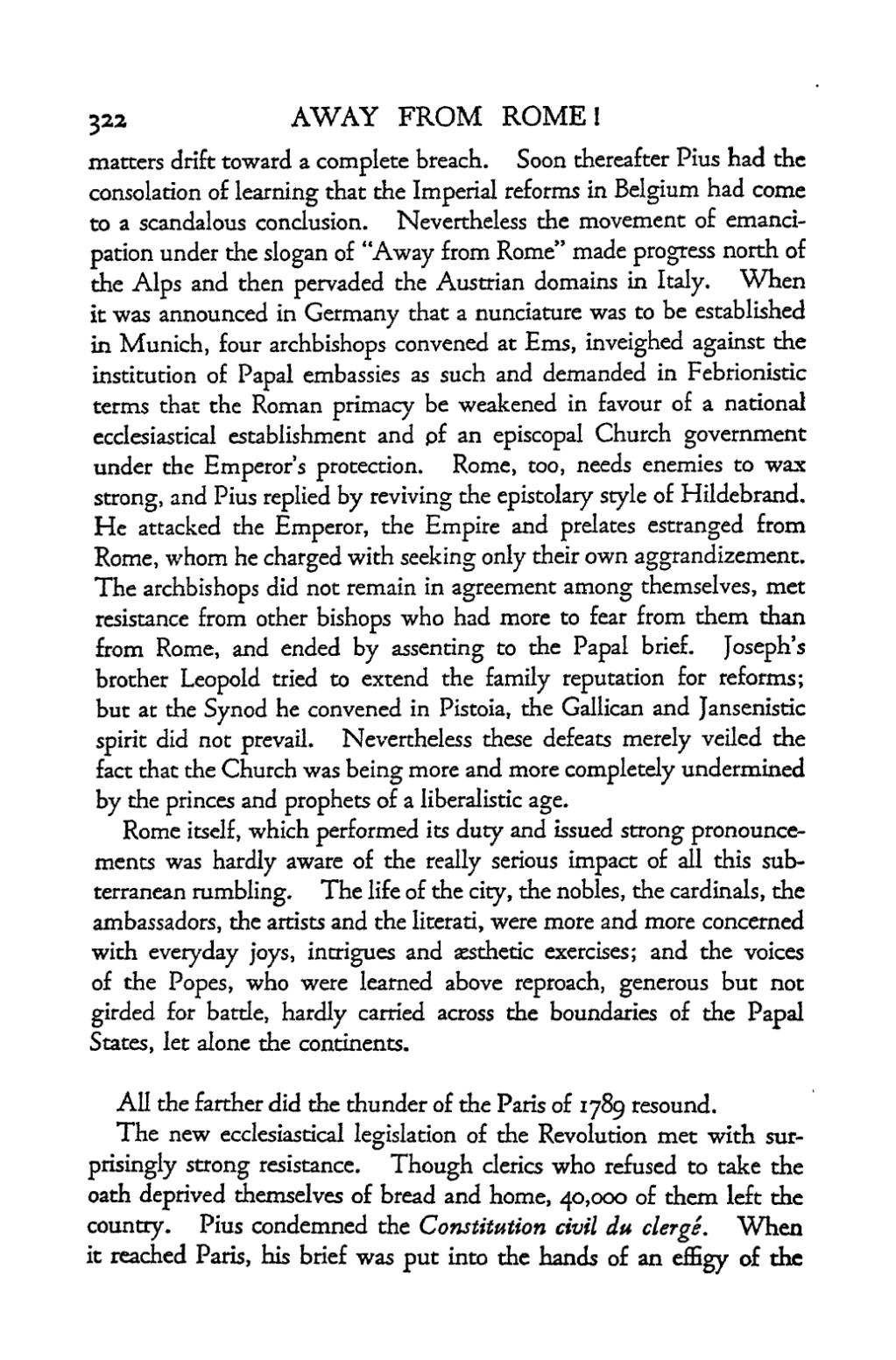FROM ROME!
matters drift toward a complete breach. Soon thereafter Pius had the consolation of learning that the Imperial reforms in Belgium had come to a scandalous conclusion. Nevertheless the movement of emanci- pation under the slogan of "Away from Rome" made progress north of the Alps and then pervaded the Austrian domains in Italy. When it was announced in Germany that a nunciature was to be established in Munich, four archbishops convened at Ems, inveighed against the institution of Papal embassies as such and demanded in Febrionisric terms that the Roman primacy be weakened in favour of a national ecclesiastical establishment and pf an episcopal Church government under the Emperors protection. Rome, too, needs enemies to wax strong, and Pius replied by reviving the epistolary style of Hildebrand, He attacked the Emperor, the Empire and prelates estranged from Rome, whom he charged with seeking only their own aggrandizement. The archbishops did not remain in agreement among themselves, met resistance from other bishops who had more to fear from them than from Rome, and ended by assenting to the Papal brief. Joseph's brother Leopold tried to extend the family reputation for reforms; but at the Synod he convened in Pistoia, the Gallican and Jansenistic spirit did not prevail. Nevertheless these defeats merely veiled the fact that the Church was being more and more completely undermined by the princes and prophets of a liberalistic age.
Rome itself, which performed its duty and issued strong pronounce- ments was hardly aware of the really serious impact of all this sub- terranean rumbling. The life of the city, the nobles, the cardinals, the ambassadors, the artists and the literati, were more and more concerned with everyday joys, intrigues and aesthetic exercises; and the voices of the Popes, who were learned above reproach, generous but not girded for battle, hardly carried across the boundaries of the Papal States, let alone the continents.
All the farther did the thunder of the Paris of 1789 resound.
The new ecclesiastical legislation of the Revolution met with sur- prisingly strong resistance. Though clerics who refused to take the oath deprived themselves of bread and home, 40,000 of them left the country. Pius condemned the Constitution civil du derge. When it reached Paris, his brief was put into the hands of an effigy of the
PIUS
